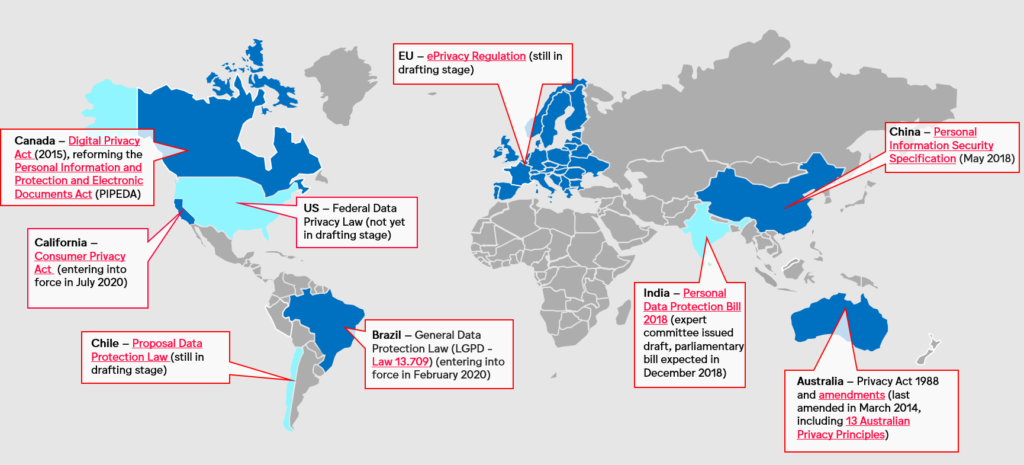Get analysis, insight & opinions from the world's top marketers.
Sign up to our newsletter.
The WFA policy team share their predictions for what the next 12 months hold for brands.

GDPR was definitely the buzz word for marketers in 2018. The new privacy rules, which came into force in Europe in May this year, meant major changes to the way companies collect and process data. The theme of privacy, especially when it comes to digital marketing, is likely to remain at the forefront of most marketers’ minds in 2019 as other countries around the world look to GDPR as a blueprint for their own regulatory changes. Already in 2018, we’ve seen new privacy rules emerge across continents in China, Brazil, California, Uruguay… And in 2019, the countries to watch will be India, Chile, Argentina and the US. What does all this mean for marketers? Embed data transparency and ethics into all of your marketing approaches, right from the beginning and adopt a mindset of ‘people first’ over ‘data first’. For more information, see WFA's Data Transparency Manifesto or get in touch with Catherine Armitage at c.armitage@wfanet.org should you want to find out more about WFA's digital policy work.

A new partnership between the eleven leading alcohol producers and some of the most prominent social media platforms will result in innovative solutions to ensure alcohol can be advertised responsibly online. Despite the United Nations calling on governments to work with the private sector on the matter of reducing exposure of minors to alcohol marketing communications, we will continue to see increasingly restrictive legislation at national level. In Europe, EU Member States will be transposing the new Audiovisual Media Services Directive – AVMSD (which regulates alcohol marketing) into national law. This will mean regulators will consider further restrictions to alcohol marketing unless brands can show they are consistent in their commitments to advertise responsibly. For more information please contact Julia Quintella at j.quintella@wfanet.org.

Chile has adopted tobacco-style labelling and marketing restrictions for foods high in salt, sugar and fat prompting high profile court cases and even some food companies to leave the market altogether. Peru, Uruguay, Guatemala and others are following suit and now Canada threatens to be a spring board to take the Latin American approach to the rest of the world. Malaysia and Singapore have just announced they’ll be looking at new restrictions of their own. Singapore is proposing an outright ban of sugar sweetened drinks - to adults as well as children, an approach which would mirror the world’s approach to tobacco just two decades ago. Of course food is no tobacco, but the industry has a fight on its hands to make its case to an increasingly zealous regulator. Should you want to know more, please get in touch with Rebecka Allén at r.allen@wfanet.org.

By most estimates most kids under 12 in Europe and North America are on Facebook. Roughly a third of their time online is spent on YouTube. And all this despite the sign-in protocols which seek to ensure the likes of Google and Facebook are compliant with COPPA, the US regulation which prohibits the collection of data from under 13s. But something is going to have to give. Regulators and ad standards bodies are noticing more and more inappropriate ads (including for violent games and movies, alcohol and HFSS products) around child directed content. This is a growing issue of brand safety and as Keith Weed, Unilever’s outgoing CMO stated earlier this year, brands cannot be seen to fund social media platforms that don’t put child protection first. Facebook and Google can no longer turn a blind eye. For more information please get in touch with Rebecka Allén at r.allen@wfanet.org.
For more information or questions, please contact us

